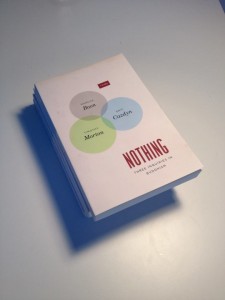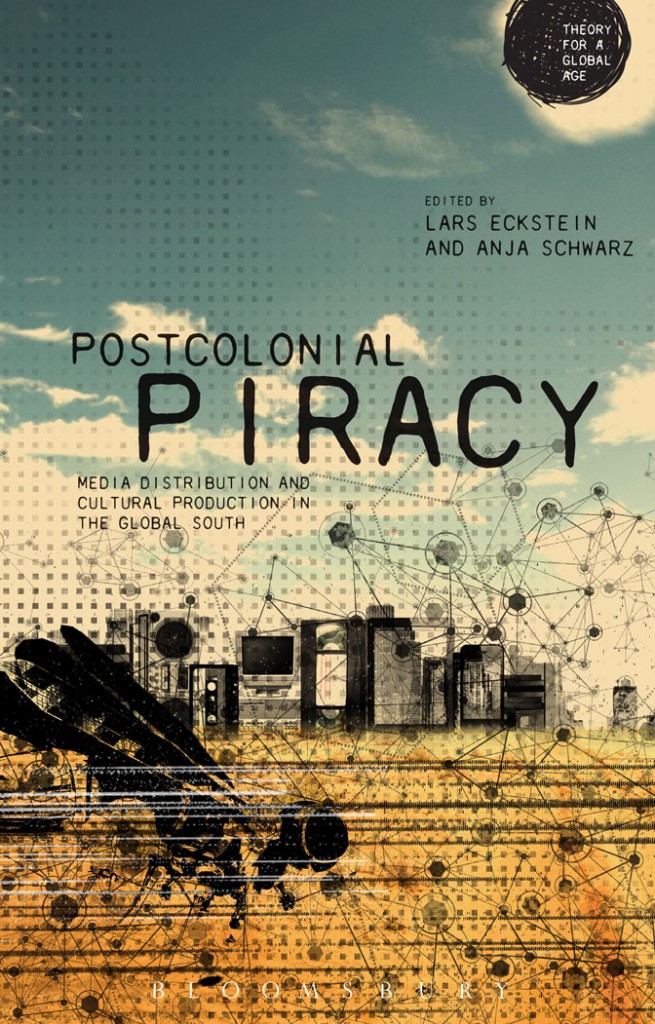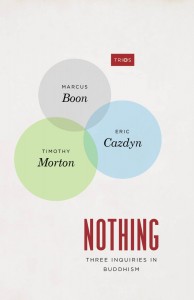 The University of Chicago Press has just published Nothing: Three Inquiries in Buddhism, co-authored by myself, Eric Cazdyn and Timothy Morton. I wrote up my own thoughts on the book here a while ago. It was a tough book to write: despite everything that’s said about Buddhism, we felt like we were entering a no-man’s land as we worked on it. Exciting and unnerving at the same time. I think it’s come out well though! Here are the amazing blurbs from the back of the book:
The University of Chicago Press has just published Nothing: Three Inquiries in Buddhism, co-authored by myself, Eric Cazdyn and Timothy Morton. I wrote up my own thoughts on the book here a while ago. It was a tough book to write: despite everything that’s said about Buddhism, we felt like we were entering a no-man’s land as we worked on it. Exciting and unnerving at the same time. I think it’s come out well though! Here are the amazing blurbs from the back of the book:
“I have contemplated and endured NOTHING for so long that it did not seem right to break my practice or offer other readers something like insight, possibly a moment of sense-making and affirmation. But I break out of my trance to assert the emphatic necessity of this book, so erudite without loading us down, relentless in its ability to resignify. Sassy, brilliant, a genuine engagement with and of thought, this work tunes us to a thrilling, endorphinating way of thinking: my drug of choice.”—Avital Ronell, New York University
“The reader will delight in two important aspects of Nothing: a multitude of contemporary Buddhist responses to the great political and social changes that have affected Asian countries—imperialism, colonialism, communism, corporate capitalism—and rigorous elaboration of Lacanian psychoanalysis with Buddhist psychology. This book is exceptional.”—Alphonso Lingis, Pennsylvania State University

